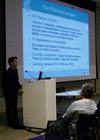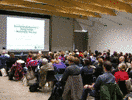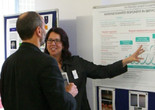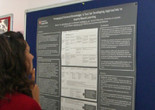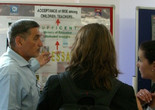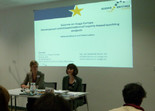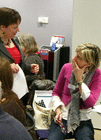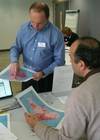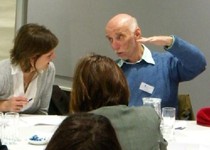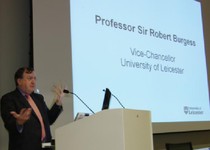Second European Conference - Programme
Key Note presentations
There were two key note presentations. Professor Barbara Jaworski, University of Loughborough, spoke on Developmental Research in Inquiry-Based Mathematics Teaching. Dr Costas Constantinou from Learning in Science Group, University of Cyprus gave the second presentation at the end of the two day conference on Design based research as a framework for promoting research-informed adoptions of inquiry oriented science teaching.
Poster and paper presentations
There were 39 papers and 12 posters presented, following review by two referees in the autumn. Presenters came from 21 different countries including many from the Fibonacci Project as well as from other European countries and some as far afield as USA, Australia, Brazil and Colombia. Presenters varied from practicing teachers to very experienced researchers. Sessions covered:
- Pupils’ and teachers’ practice from early years to 18 year olds in different countries
- Integrating mathematics and/or science inquiry into the school curriculum
- Nature of science
- Using ICT to promote investigative work
- Professional development for teachers and student-teachers
- Involving scientists in developing investigations
- Different strategies for assessment and self-assessment of inquiry activities
- Support for disseminating practice between European countries and related issues
- Use of outdoor learning sites
The conference booklet gives details of every presentation.
Workshops
Two research workshops were provided: Clarifying your research question and designing your research methods and Handling qualitative data. The Fibonacci Evaluators, Yves Beernaert and Magda Kirsch from Educonsult also gave a talk about the process of evaluating, collecting data and analysing their data. These sessions gave hands-on experience to delegates, who want to develop research based on activities with teachers and pupils, but lack confidence or wish to make their research more rigorous.
Activities demonstrating investigative practice outside the classroom
A group of delegates experienced an e-Mission which is a video conference simulation managing a natural disaster. The group played the part of an international rescue team using real data from the hurricane and volcano that hit the island of Montserrat. Delegates needed to handle data about the hurricane and volcano to make decisions concerning whether and how to evacuate the island population.
A group also visited the University of Leicester Botanic Garden. The plant collections and landscape features make the garden one of the most diverse in the region. In addition there are two Fibonacci pavements and a hopscotch showing the Fibonacci mathematical sequence. Ruth Godfrey the Botanic Garden Education officer showed delegates how this outside space can be used to stimulate learning in science and mathematics.
The conference was closed by Professor Sir Robert Burgess, the Vice Chancellor of the University of Leicester.
Delegates were very positive about the experience sending messages such as 'THANK YOU again for the perfect experience we have been provided at Leicester' and 'Sincere thanks for running such a wonderful conference. I really enjoyed it and I have some great new ideas to bring back to the classroom. Everybody was so nice and friendly'.

